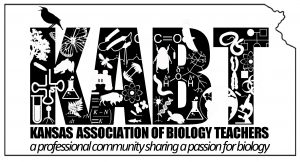The Implications of Mindset Research on Science Classrooms
A recent article in Buzzfeed News shared an overview of some of the concerns surrounding growth mindset research and pedagogies focused on leveraging that research. The membership of KABT has considered the article and its critiques and has created the following response.
The Implications of Mindset Research for Science Classrooms
Mindset research, which focuses on the differences between growth and fixed mindset, has been popularized by Carol Dweck and her associates (Yeager, 2012) (Dweck, 2008) (Dweck C. S., 2012). While there is a growing market for classroom materials, publications and workshops related to promoting growth mindsets in students, there is a growing discussion regarding the inadequacies of the research base for mindset methodologies.
The initial work by Dr. Dweck has been criticized for some of its experimental design and statistical practice. Those mistakes have been accepted by Dr. Dweck and corrections and revisions have been acknowledged. The accumulating list of errors has led to concerns regarding the validity of the results. Statistical practice in social science is an area in need of considerable improvement and a demand for best practice from the consumers of the research, the practitioners, is a way to incentivize this improvement. Teachers should not shrug off statistical malpractice as only a footnote.
Strong statistical analysis improves the confidence of readers in the reproducibility (or lack thereof) of the work. In this instance the missing statistical confidence pairs with a lack of reproduction to this point. Reproducing education research requires tremendous skill in both pedagogy and experimental design. There are concerns that the small number of attempts at reproduction do not faithfully recreate the appropriate conditions for eliciting the effect. There are other questions about the value of the growth mindset effect if it is so small and fragile that reproduction by researchers is exceedingly difficult.
At its heart growth mindsets tap into a long-held belief that hard work is valuable. Many teachers find the idea of a student having agency over their own achievement to be desirable. Growth mindset is not the solution to classroom culture. Students need more than just hard work. Tremendous energy can be spent smashing into a door until you are through it, or you can simply turn the handle and open it. When mindsets augment a productive culture and a coherent curriculum they can be powerful.
When poorly-supported methodologies are used and the teaching practice is weak, a growth mindset is of little value. As the market saturates with products claiming to be based on mindset research, we must identify which are doomed to failure from unthoughtful application. Many flying machines failed due to ignorance of flight mechanics, but flight was always possible. Similarly, when a speaker with a shallow understanding of the literature fails to demonstrate value in a product we should remember that a failed application is not the same as a faulty concept.
Inquiry in the science classroom is well-supported by research as best practice. Interconnected understanding, developed through retrieval practice and responsive feedback, is superior to linear content delivery by a lecturing expert to passive audience members. Shaping that feedback through a growth mindset lens appears to have a positive impact despite the fact that reproduction of the research is proving difficult. Indeed, our job as educators is to do something that is hard! We must synthesize the research regarding mindset with best practices in assessment, classroom management, curricular design, differentiation, inquiry instruction, choice theory and many other overlapping domains to produce the strongest experience possible in unique students who change every semester. This is our job and they call us educators.
We must be faithful to the body of research. We can simultaneously incorporate aspects of the growth mindset research into our classroom and remain skeptical of the work. If future studies reveal flaws and allow us to develop a better description of how student perceptions shape learning, we should follow that work also. We also need to share our perspective from the field to shape investigations to be more useful and applicable. Perhaps more dynamic classroom methodologies will yield stronger signals in new mindset research. Perhaps responsive differentiation will allow us to visualize specific demographics who stand to benefit the most from a growth mindset. Perhaps training in retrieval practice as studying will increase the propensity of students to adopt and develop a growth mindset through greater yields from investment.
Ultimately we must close the gap between practitioner and researcher in education. Medical doctors consider experimental treatments and provide feedback on their results on a regular basis. Attorneys publish briefs and review frequently to respond to an ever-changing body of legislation. We, too, must become more than consumers of research. Teachers must communicate with researchers because our classroom experience can make experimental design better. We can demand stronger statistical practice, more meaningful treatment conditions and more targeted assessment tools. The improved research will return as more actionable results which we can use to improve our technique again.
We must allow our classroom practice to respond to the current literature while acknowledging and addressing its flaws. It is highly unlikely that a growth mindset is the educational silver bullet. It is also unlikely to be entirely smoke and mirrors. Instead we are trying to understand a remarkably complex system so that we can help it mature as effectively as possible. As far as promoting a growth mindset can further that goal, we should use it. When the body of research indicates there is a better approach, teachers should change methods. We should not switch a moment later than when the research publishes, but not a moment before either.
References
- Dweck, C. (2008). Mindsets and math/science achievement.
- Dweck, C. S. (2012). Mindsets and human nature: Promoting change in the Middle East, the schoolyard, the racial divide, and willpower. American Psychologist, 67(8), 614.
- Yeager, D. S. (2012). Mindsets that promote resilience: When students believe that personal characteristics can be developed. . Educational Psychologist, 47(4), 302-314.

 Previous Post
Previous Post